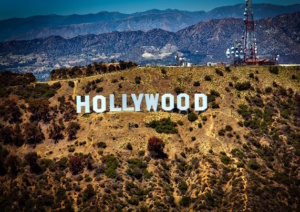by Claire Ellen Jack
Considering the recent and highly publicised sexual harassment allegations against Harvey Weinstein, it provides us with a rather dismaying opportunity to reflect on this scandal in a much wider context. The allegations against Weinstein are horrific in degree but sadly not commonality. This is a problem that permeates through Hollywood like a parasite and has done for decades. It poses the questions: if this is such a widescale problem within Hollywood, why do Weinstein’s allegations come as such a shock to us all and how could this have been allowed to happen?
The sheer scale of Weinstein’s crimes is enough alone to answer parts of the above questions, but these cases are not appallingly rare nor exceptional in Hollywood. As it stands, Weinstein is accused of sexual harassment by at the least 40 women over a 40-year period, although, this number is still growing as more women come forward. Three women have also come forward stating that Weinstein had raped them, and many others have reported sexual assault including inappropriate touching and indecent exposure. It is a harrowingly copious number of victims which only highlights the scale of this problem. Naturally, Weinstein denies every allegation against him, stating that every sexual encounter was consensual. This is despite a tape recording from Ambra Battilana Gutierrez which horrifically documents him attempting to blackmail the model into staying with him in a hotel. Shockingly, Weinstein admits to groping Gutierrez whilst abusing his status as a ‘famous person’ to coerce her into staying with him. It’s precisely these mounting evidential testimonies and ongoing repercussions of this case which make it so historic or as Tom Hanks has claimed, ‘a watershed moment, this is a sea change.’
 Indeed, Weinstein’s company have dropped him from the board, BAFTA has suspended his membership with immediate effect and he is set to have his CBE title stripped. Promising repercussions that look optimistic towards prohibiting Weinstein from working in Hollywood or the film industry all together. Only time will tell if this is indeed far too optimistic or not. The fact that many prominent stars have refused to work on any current films under the Weinstein Company does look promising. Rather uncannily, this includes actor Channing Tatum pulling out of a film called Forgive me Leonard Peacock, about a boy who is sexually abused, which was being produced under the Weinstein Company. Perhaps a disturbing coincidence or even more worryingly a twisted admission of guilt from Weinstein. Either way it points to this problem as being something of an ‘open secret’ within Hollywood, so much so that a mogul like Weinstein can openly explore these issues in his films whilst at the same time committing such sexual offences behind closed doors.
Indeed, Weinstein’s company have dropped him from the board, BAFTA has suspended his membership with immediate effect and he is set to have his CBE title stripped. Promising repercussions that look optimistic towards prohibiting Weinstein from working in Hollywood or the film industry all together. Only time will tell if this is indeed far too optimistic or not. The fact that many prominent stars have refused to work on any current films under the Weinstein Company does look promising. Rather uncannily, this includes actor Channing Tatum pulling out of a film called Forgive me Leonard Peacock, about a boy who is sexually abused, which was being produced under the Weinstein Company. Perhaps a disturbing coincidence or even more worryingly a twisted admission of guilt from Weinstein. Either way it points to this problem as being something of an ‘open secret’ within Hollywood, so much so that a mogul like Weinstein can openly explore these issues in his films whilst at the same time committing such sexual offences behind closed doors.
Hollywood has been plagued by sexual harassment, sexual assault, and even sexual abuse scandals for decades. Although, it can be hard to conclusively research the immense scale of these scandals because Hollywood, being the powerful giant that it is, covers them up as best they can. During the 1950’s Hollywood’s branded sex symbol, Marilyn Monroe, described tinsel-town as an ‘overcrowded brothel, a merry go round with beds for horses.’ Monroe is referring to Hollywood’s infamous casting couch, which I would argue, has become so institutionalised within the industry to the point where it is reaching epidemic proportions, albeit hidden. A casting couch refers to a person in a powerful position demanding sexual favours from subordinates in exchange for career advancement. This has become so naturalised within the film industry especially, because of the lustrous lure of fame coupled with an industry based on rejection and conspicuity. Powerful men can so easily abuse their authority because they are working in one of the most lucrative, stringent, and most beautiful industries. And primarily, Hollywood is arguably one of the most concealed industries in the world; underneath the façade it is a hotbed of illicit activity which no-one knows or at least talks about.
The Hollywood casting couch can be traced back to, at the very least, 1921, so it is deeply concerning that the problem still exists almost a century later. Back in the 1920’s, Roscoe Arbuckle was prosecuted for raping of actress Virginia Rappe, which resulted in her subsequent death. He was tried for manslaughter but was acquitted of all allegations after a lengthy trial. At the time, Arbuckle was a prominent silent movie director so how could an emerging giant like Hollywood afford to lose him? They couldn’t and since the industry is founded on successful, money-making hits, it seems in their best interest to protect those bringing in that profit regardless. Sexual harassment claims are then brushed under the carpet, all in the name of money and one can only speculate then at how rife the problem is. Icons such as Joan Collins, Shirley Temple, Judy Garland and all the way through to Angelina Jolie, Charlize Theron, Gwyneth Paltrow and Emma De Caunes etc. have all reported sexual harassment or assault. This is not a new issue, it’s one that Hollywood has been continually aware off yet chooses not to address until of course, it is forced to confront. This only exposes the double standard of an industry which is meant to shed light on such issues, not be the source of them.
 There has been a growing pressure on revealing the hypocrisy of Hollywood since the Weinstein allegations. Indeed, Dorothy Cummings-Mclean stated that the case reveals the ‘glaring liberal Hollywood hypocrisy’. There’s no question that Weinstein’s ousting can only be positive, but Hollywood’s misogynist culture can only change once people realise the scale of this problem and that it is not just a few predators like Weinstein. Hollywood, may hide behind a liberal front, advocating equality but as Jessica Chastain claimed, ‘Hollywood is rife with racism, sexism and homophobia.’ It needs to address these issues on a wider scale rather than singling out cases as anomalies, blindly believing the system is working. It is a flawed system with no protection in place for those vulnerable to those in power.
There has been a growing pressure on revealing the hypocrisy of Hollywood since the Weinstein allegations. Indeed, Dorothy Cummings-Mclean stated that the case reveals the ‘glaring liberal Hollywood hypocrisy’. There’s no question that Weinstein’s ousting can only be positive, but Hollywood’s misogynist culture can only change once people realise the scale of this problem and that it is not just a few predators like Weinstein. Hollywood, may hide behind a liberal front, advocating equality but as Jessica Chastain claimed, ‘Hollywood is rife with racism, sexism and homophobia.’ It needs to address these issues on a wider scale rather than singling out cases as anomalies, blindly believing the system is working. It is a flawed system with no protection in place for those vulnerable to those in power.
Interestingly, documentarian Amy J. Berg, explored the issue of sexual abuse in the film industry in her 2014 documentary, An Open Secret. It exposed the scale of child sexual abuse in the film industry and highlighted how widely known this horrific problem is and just how easy it is to fall prey to these powerful abusers. Actor Corey Feldman, who features in the documentary, has campaigned for years to expose sexual abuse in Hollywood having suffered himself but it is only now that his campaign is garnering recognition. Troublingly, many abusers are still active or at least have been allowed to continue to work within the industry following the allegations against them. There is a plethora of powerful men who have been accused of sexual misconduct, still being allowed to work in Hollywood including Bryan Singer, Ben Affleck, Chris Savino, James Toback and even Weinstein’s brother, Bob Weinstein, to name but a handful.
The exposure of Weinstein is only the start, and already it has produced a ripple effect as more allegations surface. But this is a deeply embedded epidemic in Hollywood and the film industry in general and I only wonder how far it must go before any real change will take place. There needs to be greater protection for those vulnerable to moguls such as Harvey Weinstein, Jimmy Saville, Bill Crosby, and a recognition that this is a problem with the system, not standalone individuals.
